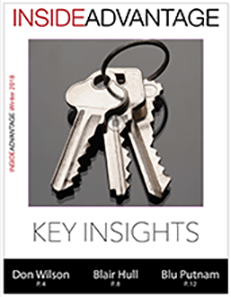Trader Trait #1: Overconfidence and Investment Savvy
This one really plagues our profession. We’ve seen it time and again on the trading floor. For every $1 million we make trading, our IQ goes up about 10 points. Or so we convince ourselves. The truth is, it’s often just a matter of being in the right place at the right time. In other words, sometimes we’re just lucky.

In our profession, it might be argued that a touch of overconfidence is commendable. It fires our creativity and helps us endure those times when things don’t go our way, despite our best efforts. The trouble begins when we extend overconfidence into our wealth planning. We see smart traders decide they’re so good at trading, that they can also pick the next highly profitable trendy restaurant or commercial building or Google stock in which to invest their earnings.
The problem is, no matter how confident or doubtful you are about your ability to make accurate investment predictions, it’s the wrong game to begin with if you are to be guided by the tenets of a sound investment strategy. Traders are playing roulette while investors are playing chess.
Trader Trait #2: Overconfidence and Damage Control
As financial professionals, we tend to feel an extra burden of responsibility to be right about all of our money-making decisions. Especially if we’re a touch overconfident of our financial skills, we may be particularly reluctant to admit (even to ourselves!) when we’ve made a mistake, lest it mar our professional pride and reputation.
Plus, we’re susceptible to loss aversion. Like most people, we feel the pain of a loss more sharply than we relish the pleasure of a gain, and we’re prone to make skewed decisions as a result.
In our trading careers, it’s hard enough to stomach, say, a 10 percent loss on a modest portion of our account, especially when we feel we could have somehow prevented it. As an investor, the problem is exacerbated when the account value is $2 million and represents the core of our personal wealth. Loss aversion, combined with the confidence that helps us survive on the trading floors or trading rooms begins to play against us, blocking our ability to think objectively and respond rationally.
- Does it make the most sense to ruthlessly cut a loss and move on (avoiding “anchoring,” which we’ll describe next)?
- Is there an opportunity to tax-loss harvest?
- Is it time to rebalance according to the predefined parameters in your written Investment Policy Statement?
- Should you consider adding to your holdings while prices are low, or at least riding out the underperformance that we hope will be brief?
These are the possibilities appropriate in pursuit of long-term growth. The particulars determine the most sensible course for the circumstances — but not if you’ve been blinded by your behavioral biases.






